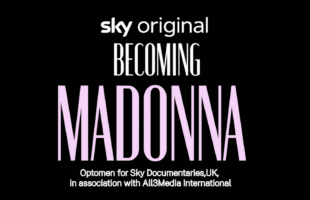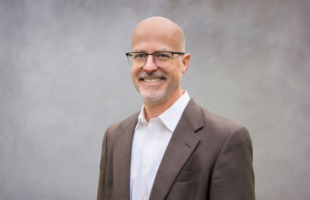TVAPlus: You were a key part of last year’s ASD in Seoul. What was the response like from local and international documentary makers about the event?
We saw an amazing number of exchanges and a lot of new partnerships were developed. I think what differentiates ASD from a lot of markets that we’ve had is that we’re actually reaching out to producers who don’t speak English. It’s incredibly important because although to do business you do need to speak English, there’s a learning curve. And to get people – at the beginning of that learning curve – is a great thing to build from. ASD is not just about new talent but also for veterans of the industry who are beginners at doing business in the international marketplace. It provides an international perspective and platform to meet.
TVAPlus: Co-productions are defi nitely increasing and giving more fi lmmakers opportunities to work together, is it now standard practice to seek out such partnerships here?
We found that there are so many great producers and they’re really interested in doing co-productions but they don’t even know where to begin. This is especially so in Korea and Japan. Both these markets are very big, very successful television markets. Japan is the second largest advertising market and the domestic industry was thriving for decades, but now with the downturn of advertising on television, you’re seeing that broadcasters are having to change the way they do business and producers are having to change the way they do business.
And people who have huge companies worth hundreds of millions of dollars, they’re producing documentaries – some of them are seeing their documentary blocks fade away and wondering how they’re going to survive and one of the things they need to do is to get out of their own marketplace, but you’re dealing with these guys who are at the top of their markets. In many ways they are just starting at the very beginning for international business. I think it is these veteran producers who can easily slip into an international co-production once they understand how it all works. We really need to learn right from the very beginning.
TVAPlus: Of course, the numbers of hours for factual programming has increased as well as channels – more so in Southeast Asia – but the funding has stayed about the same. Do you think coproductions are a necessity now to make high-quality content?
I think there are two aspects to that. I think that co-productions are sometimes necessary because of the subject matter. You might have found a ship that’s in international waters that belong to three different countries and their history. Coproductions arise because of money; they can arise sometimes because of treaties that have been established by countries to encourage trade. I know that for example in Korea, they have a scheme that has helped produce programmes with certain countries signed with the WTO (World Trade Organization). Finland, Norway and Singapore were some of them. And if you could do a co-production with them, then they were going to give you a hundred thousand dollars, for example. So it’s interesting to see how governments are now also an incredibly important part of co-productions.
Another reason why we need to do co-productions is because of the emergence of new media. I think that documentary conferences have been entirely focused on television. But I think that we really need to move that focus to a broader sense of moving images, visual imagery. Producers need to be thinking about the future and that means actually working with advertisers to fi gure out how through documentaries, without compromising our editorial integrity, we can actually access more audiences. They don’t often use documentary as a medium to sponsor so we have to think of new creative ways to do this. Partnerships is key.
TVAPlus: You meet and work with many commissioning editors throughout the world, what is their take on what they’re seeing being made in the region?
I think that they’re really excited at what’s happening. I think that for a long time people have only been able, to work with Asian producers or broadcasters who have established international divisions with people who speak English. I think for the fi rst time ever, they’re actually meeting really interesting producers and hearing amazing pitches. We maximized these opportunities at ASD in Seoul with multi-lingual translation and we plan to again in Tokyo. It’s also important that governments, broadcasters and producers are able to see and understand what commissioning editors from the West want in regards to content and its presentation.
Overall international broadcasters are seeing a different side of Asia. They’re really saying “wow this is an emerging marketplace and there’s much to tap into”. However, although we really love our international buyers and the people who are really dedicated to co-producing with Asia, from a real commercial standpoint, there’s always going to be a limit to how much Asian programming there is available. Demand still exceeds supply in some markets here. So the remedy is that we in Asia coproduce with each other. Sadly it doesn’t happen enough. We’re very fragmented.
But it’s got to be Asia for Asia fi rst and foremost. I really don’t want to come off as that we’re not that interested in foreign co-productions and we’ve defi nitely come a long way over the past decade. I remember going to markets in the late 90s and people shutting the doors in my face saying, “Asian production, are you kidding me?” But I always have felt that the programmes we make fi rst and foremost have to be for the Asian market. What we need to do is to create a framework and a marketplace – a real cohesive marketplace in Asia. And that’s not just for documentaries but across the board – whether its fi lm or new media or kids TV.
TVAPlus: For the new generation of fi lmmakers it’s a more adaptable television society today. Culture crosses continents a lot more fl uidly these days and Asian culture particularly is not seen as such a monolithic entity – K-Pop is an example.
Young people have a borderless culture. They’re on the internet these days and watching content that comes from every part of the globe. Kids in the West have grown up watching anime and manga and gaming and all that, Asian culture is really big and popular. And now of course the majority of television revenue is from outside the US so they have to incorporate this culture in their content.
TVAPlus: What about ASD in Tokyo. What is the focus and aims for you and the organizing team this year?
We’re hoping Asian Side of the Doc is becoming a unifying force. We want to have more multi-lingual translations for Thai, Vietnamese, Hindi, Tamil, for example and we really want to support more ASEAN producers and to broaden the base of producers, broaden the base of broadcasters and platforms – telecoms and app makers. I want to hold a master class in apps, for documentary producers to learn how to produce apps because we have to be realistic about the future of the genre.
Of course we’ll continue to build our bonds with the rest of the world and help each other. We are creating fi rst and foremost, I believe, a regional framework for content production, which gives fi lmmakers the right tools and contacts to develop their work. We really appreciate the fact that producers, especially in Europe, respect not only our stories but also our perspective. In fact a representative from France5 told me, “I don’t want a documentary about China by a French producer this time, I really want it from a Chinese producer. We want to see what the Chinese think and how they’re going to present their country to us.”
TVAPlus: Yes stories are stronger and also the observational style of documentaries is now passé in a lot of ways.
Yes exactly. In America I think documentary-making has become so commercialized, almost reality shows. But I think what is great is that in many parts of the Asia- Pacifi c, we still really love the poetic elegance of storytelling and the narrative form of documentaries. And we certainly don’t want that to die.
The other thing we want to focus on this year is feature length documentaries. We don’t have a lot of feature-length documentaries. Actually to be honest, there are a lot of feature documentary producers in Asia but really there is no place here for them at all. So they’re kind of stuck in this black hole between fi lm and television. There are theatres in Korea opening up and devoting their schedules to feature documentaries and there is greater interest for such fi lms. ASD is not really about cinema owners and the business; rather it’s about the craft of featurelength documentaries and what’s appropriate and the themes and all that. So I think that there’s defi nitely an appetite for this.








